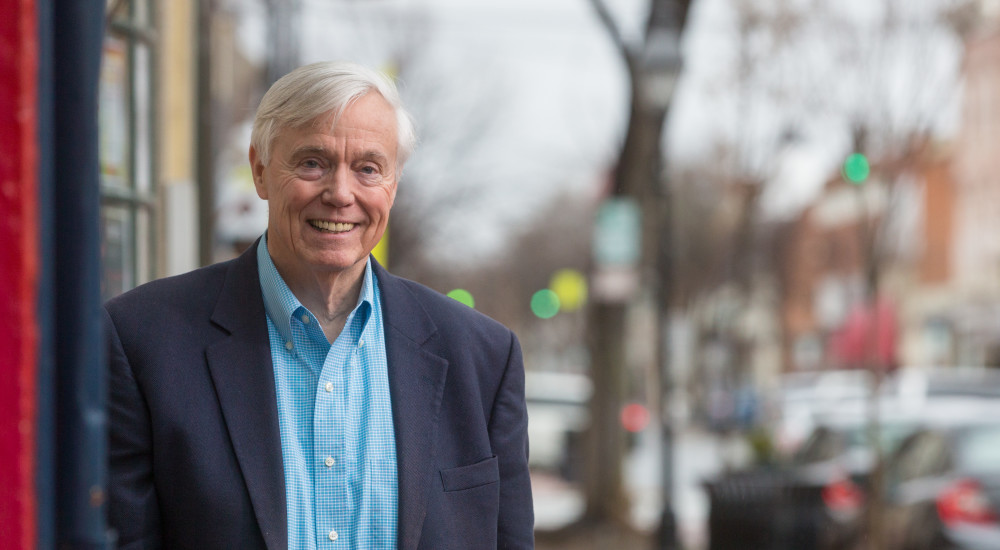Virginia General Assembly Sine Die, Part Five
Overshadowing the final chapters in this year’s General Assembly story are the record number of bills vetoed by Governor Terry McAuliffe. The official deadline was Monday night, the 27th of March, when well over one hundred pieces of legislation had been rejected. McAuliffe has broken the veto record for any previous Virginia governor.
Last week’s “Part Four” of my series on this year’s General Assembly has a link to each installment, which concentrated on highlights of the 2017 session. A number of the bills discussed in the series are already dead, thanks to Governor McAulliffe. On April 5th, the GA will reconvene, and can in theory override a veto with a two-thirds agreement of the body, but conservatives do not have a veto-proof majority.
Having acted in support of local government for the past decade, a place where you meet and see folks up close and personal, I can’t really express how sad it is to see a Governor of Virginia override the will of an elected body to such an extent. I know the old saying, “Elections have consequences;” however, delegates and senators are also elected from Virginia localities and their efforts should mean something.
The Governor’s latest braggadocios comments and reasons why he has broken the veto record can be found just about everywhere on the internet. Like my colleague Brian Schoeneman, who wrote about this last week, I can’t fathom why the Governor would brag about an inability to build even rudimentary consensus, or how this can be seen as anything other than a failure of accomplishment.
The message that it sends to regular Virginians, those that don’t engage in activism and partisan politics every day, is a poor one and undermines confidence in our government. These are the forgotten majority, who I hope this year in particular will remember the Governor who negated two months’ worth of work on nearly 100 pieces of legislation by their elected representatives. For this year, I will give up my oft repeated advice to people who want to appeal to the Governor for a particular issue. I normally say, “Our Virginia Governor is elected to serve us all,” but apparently that’s really not the case.
I have at times been our GA’s worst critic, but when a bill has passed dual houses, and has been debated and worked with amendments from both sides of the aisle, the Governor should give that legislation much more respect and consideration. Vetoes are always a part of the process, but some this year are patently mean spirited.
It’s no secret that the Governor doesn’t believe in the necessity of school choice; however, what is the problem with establishing online education programs for Virginia students? Why would any governor not allow Virginia parents more avenues to money already allotted by the state? Why not allow those to be set aside toward an education parents chose for their children? How does homeschooling or forcing a child into a school where he or she is not thriving help public education in Virginia?
Long hours of work in session were also spent on the Charter School bill submitted by Senator Mark Obenshain, a bright light at the end of the tunnel for those whose children are in failing school divisions. Modeled along the Charter School success stories now being enjoyed in cities like Philadelphia and New Orleans, this bill, SB1283, is an amazing example of legislation which received bi-partisan support from both parties here in the Commonwealth. SB1283 did not divert taxpayers dollars from public schools and would have applied to only ten school divisions in Virginia.
An amendment to this bill was proposed by the Virginia Association of Counties to weigh oversight on these charter school boards in favor of local officials, and was within reach. This amendment could have been facilitated by the Governor. He chose to not even show up to the table to discuss the amendment and used the veto pen instead.
The Governor also nixed a religious freedom bill, calling himself a friend to the Virginia economy and, in fact, sent the opposite message to businesses who do not agree with his personal religion or philosophy. While there is quite a bit of spin on this one, the bottom line is state money and subsidies are only for those who adhere to certain criteria in their beliefs, a philosophy which is diametrically in opposition to what most Democrats say they want.
Such a veto record this year is a mockery of the whole process of Virginia government and makes it apparent that some legislators are simply going through the motions, knowing the Governor won’t even show up to dialogue, communicate, or govern. This just isn’t healthy for the process and is not what we hire our legislators to do.
Some joke that our elected officials make big bucks. The truth is they leave their day jobs and their families for two months or more out of the year to become gypsies in Richmond, and don’t make big bucks at all from GA salaries. I know many who sacrifice a great deal to do what they do when the session convenes. When election time comes this November, voters need to remember that so large a chunk of their work was disregarded. I hope voters will take note of our present Governor who bragged about overriding the will of the people of Virginia.
This finally brings us to the inevitable biennial budget discussion which is, after all, considered to be the main purpose of an odd year “short session.” Last year, after passage of this traditionally voluminous financial document, a one billion dollar deficient later appeared, a shortfall which caused the Governor to walk back the promises of 2016. There is little that prevents the same scenario this year with the new $107 billion amended version of the two-year budget, despite some really grueling work on behalf of the House and Senate finance committees. The committees did a good job in a willingness and good faith effort to cut at least some of the Governor’s superfluous projects.
Here is the official statement on the budget from our General Assembly leaders.
“Our amended budget reflects the priorities facing the Commonwealth. The budget is conservative and responsible, reduces borrowing, eliminates new fees and charts a responsible course. We secured the future of state employees by giving them a much-needed salary increase, including our hardworking men and women at the Virginia State Police. We made a significant investment into K-12 education, $18 million more than originally proposed by Governor McAuliffe, and increased flexibility for local school divisions. Our budget also includes a 2% pay raise for teachers. We also invested over $20 million more than the Governor to support the Commonwealth’s public colleges and universities.”
While this is all well and good, buried in this generous document and in budget language are a number of things of interest which should tell us to watch our pocketbooks. Let’s talk about several of those and translate.
“The budget makes strategic investments into economic development efforts, but adds additional oversight to ensure that all taxpayer dollars are spent wisely.”
What this means is that the lame, spastic, or non-existent efforts of the Virginia Economic Development Partnership are becoming common knowledge, despite all the millions pumped into that entity. Understanding what a liability they are, McAuliffe just hired a new “internal auditor” and a new director who is currently making the grand tour of localities to convince local leaders, essentially, that things will be different. His invitation gives those leaders a three hour window on the whistle stop tour of this grand potentate to meet him. The entire VEDP could have been dismantled and not a ripple would be felt in the business world of Virginia.
An even more interesting paragraph buried in the budget language is the creation of a “joint subcommittee to examine local fiscal stress, including local responsibility for services and delivery and disparity between taxing authorities of cities and counties.”
This is actually a budget conference report which directs the creation of a “work group to develop an early warning system for localities in financial distress and outlines a process for state intervention in certain cases.”
I asked three legislators what this language meant. They told me they had no clue, and while I appreciate their honesty, it makes me no less apprehensive that it was included. A multitude of serious problems immediately arise with such a strong arm approach. How would a delegate in Southwest Virginia understand utility needs in Caroline? Would they take into consideration the age of Caroline schools when determining our education needs or even fire and rescue, which has both a paid and volunteer component? How would these deliveries be fairly assessed?
Does this mean the GA will be bailing out irresponsible localities with my tax dollar? My immediate thought was, “Is this a bail-out on Petersburg?” So for those of you who get tired of reading about my inroad scenarios on local government, here is proof positive where government is heading, even if no one in governance will take ownership presently.
In addition, if you think about it, this kind of control would be an interesting fix for many of the bills on behalf of industries that did not pass the GA this year. When the talking points on these bills became obnoxiously transparent, their proponents tacked a different way, changing the approach to “local government isn’t operating properly or in a fiscally responsible way and we’re here to help.”
How much easier would it be to pass these bills if it were already established that certain localities were spending public money inappropriately and not delivering services properly? After all, perfectly working cell phones, cable, and internet could become an inherent right which must be provided to citizens. Even more interesting is that your tax dollar supported the studies from the joint groups which established that right under this budget language. Food for thought.
Moving along, if you have kept up with any news on the GA at all this year, you probably have not missed the fact that the time has finally come to retire the old General Assembly building. It is actually four older structures married into one, and has served the Assembly for forty years. Filled with asbestos, mold, and other issues, only the historic front facade which faces Capital Square will be retained and the new structure which will cost around 300 million is scheduled to be completed in 2021.
In the most notable news not related to legislation, House Speaker Bill Howell truly signaled the end of an era when he announced his retirement from the Virginia General Assembly. If Virginia politics has touched your life over the past several decades at all, you know the name Bill Howell. Whether you like his legislation 100 percent of the time or not, this is the man who has the smarts, the will, and the sense of humor to keep it all together as he faithfully raised money year after year to try and keep our Republican legislators and initiatives at the forefront.
Bill is liked by many on the other side of the political spectrum as well, and my hope is he will leave some of his consensus building expertise on the table as an example for others to follow. My colleague Shaun Kenney has an excellent summation found here on The Jeffersonaid, but suffice it to say every single Virginian owes Bill Howell an enormous thank you for his service over these many years. I wish him health and happiness in his well-deserved retirement. The new Speaker of the Virginia House of Delegates will be the Honorable Kirk Cox and to him I say, “You have some big, big shoes to fill.”
Until next year this is your friendly General Assembly Watchdog. Over and out.


